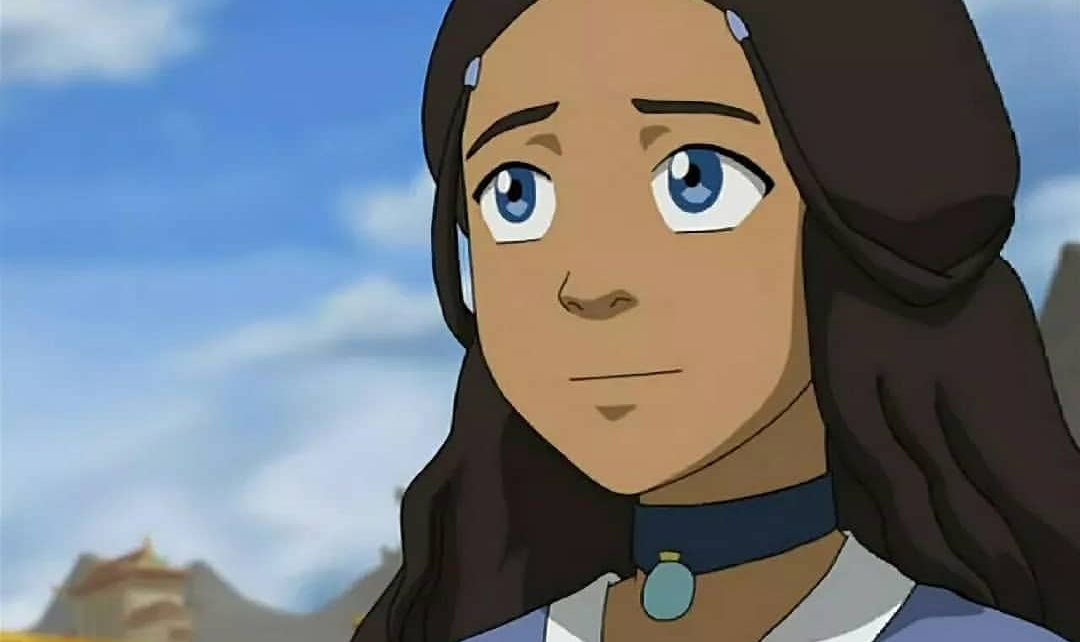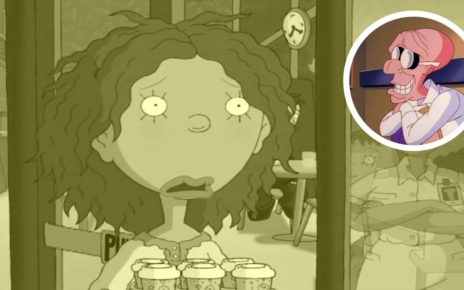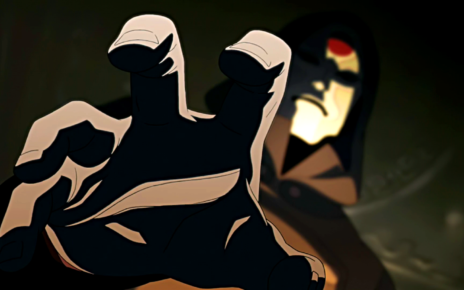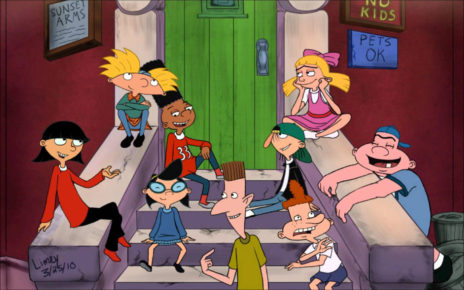
Change has a funny way with people. In some, it breeds a flexibility to handle whatever comes. In others, it instills only a tolerance for itself. In still others, it builds a wall, codifying behaviors and beliefs in an effort to protect what is from what could be. But in all cases, it forces adaptation. Fighting change still gives change what it will always have.
“Water is the element of change,” the disgraced Fire Nation general Iroh tells his nephew, the disowned prince Zuko, in a lesson on the four nations of the world of Avatar: The Last Airbender. “The people of the Water Tribe are capable of adapting to many things. They have a deep sense of community and love that holds them together through anything.”
There’s a dichotomy here between adapting and community, the twinned yet seemingly incongruous abilities to both move with change and hold fast against and through it. Like Tui and La—the Moon and Ocean spirits whose push and pull are the power behind the whole of the martial art called waterbending—change both requires and begets pliancy and rigidity in equal measure. It’s up to each individual to decide whether they can get with that, whether the change be good or bad.
For Katara of the Southern Water Tribe, that change is almost always bad, even when she handles it admirably. That’s usually what happens when your whole life is colored by your trauma: by early childhood loss and by exile.
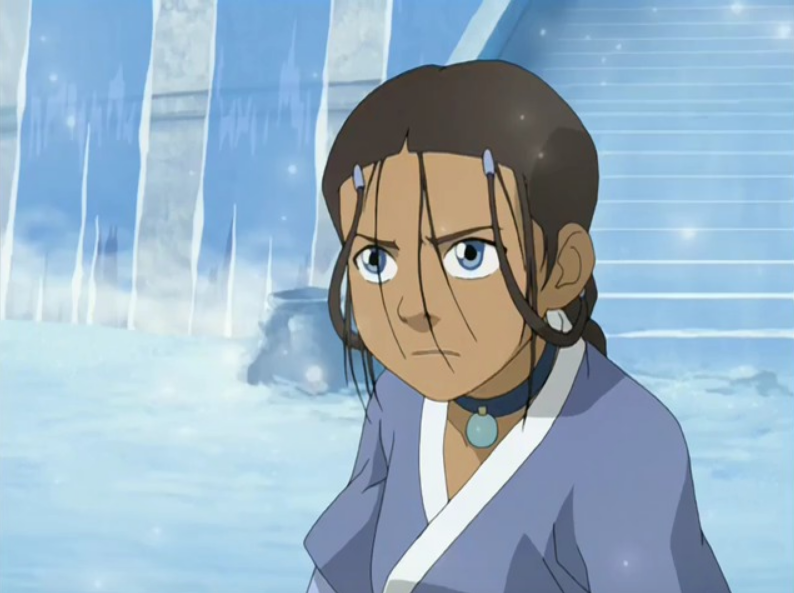
When I was eight—three years after my biological mother died, and a few months after my father married my adoptive mother—we moved from my home city of Pittsburgh to Long Island, where my new mom could be closer both to her parents and to New York, the city in which her industry, publishing, was based. Now 28, sometimes I still don’t know what to tell people when they ask where I’m from. “Pittsburgh-born, Long Island–raised” is the simplest, most technically accurate answer, but it leaves out so many of the pieces of what makes me me. Pittsburgh, to this day, is almost mythical in my memory, even though I still visit family there often. The change — from one mother to another, from a city of rivers, unions, and steel to a conservative, wealthy suburb of one of the cultural capitals of the world — did not leave me the same. It left me an emotional chameleon, ever shifting my own needs to fit into those of the people around me, lest I lose them too. It made me ever-changing because I was terrified of change.
The writer André Aciman—whose novel Call Me By Your Name, adapted into film, is currently emotionally crushing audiences everywhere—writes, in one of my favorite essays of all time, of precisely this phenomenon.
A Sephardic Jew living in Alexandria, Egypt, in a home where Italian, Greek, Ladino, Arabic, and, primarily, French were all spoken, Aciman was a member of the Mutamassirun community of “egyptianized foreigners” living in Egypt, and as such was never able to become an Egyptian citizen. Despite weathering the 1956–57 exodus and expulsions of the Mutamassiruns from Egypt, tensions with Israel under President Gamal Abdel Nasser forced Aciman’s family to leave a little less than a decade later; Aciman and his mother and brother moved, as refugees, to Rome, while his father went to Paris. Three years after, they moved to New York. Yet decades later, Alexandria still haunts him.
“I wanted everything to remain the same,” he writes in “Shadow Cities,” an essay from the collection False Papers: Essays on Exiles and Memory. “Because this too is typical of people who have lost everything, including their roots or their ability to grow new ones. They may be mobile, scattered, nomadic, dislodged, but in their jittery state of transience they are thoroughly stationary. It is precisely because you have no roots that you don’t budge, that you fear change, that you’ll build on anything, rather than look for land. An exile is not just someone who has lost his home; it is someone who can’t find another, who can’t think of another. Some no longer even know what home means. They reinvent the concept with what they’ve got, the way we reinvent love with what’s left of it each time. Some people bring exile with them the way they bring it upon themselves wherever they go.”
Aciman’s circumstances and mine find a bizarre synthesis in Katara, whose mother, in an effort to protect her waterbending child from the troops of the Fire Nation, was killed during a raid that decimated her village when Katara was a young child. Then, as a teenager, after Katara discovers Avatar Aang frozen in a block of ice, the Fire Nation returns, and Katara and her brother, Sokka, are forced to leave their village on the South Pole if they wish to save it from the ravages of a never-ending war. They become refugees in order to end a war that creates them by the thousands; they become exiles in order to rebuild a world that once valued harmony between elements and, as a result, to end exile itself. They find a whole new family in Aang and other new friends, yet never lose their history or forget those they have lost or left. They become sailors on the seas of change, prey to all its caprices.
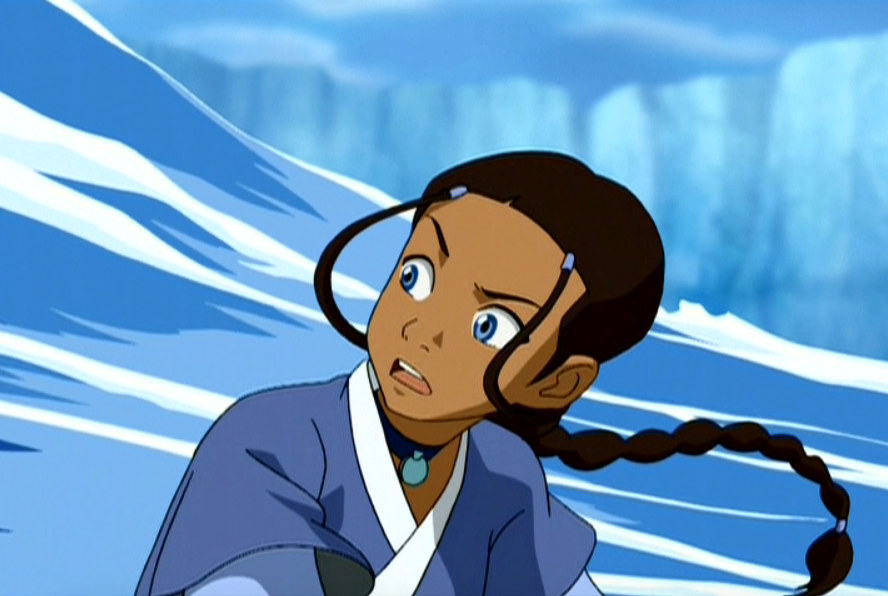
Of the four elements in the world of Avatar: The Last Airbender and its sequel, The Legend of Korra, water is the one I identify with most. In all the geeky “Which type of bender are you?” question-and-answer games I’ll play with friends, I always teeter between water and fire before inevitably choosing water, the same way I teeter between Game of Thrones houses before inevitably choosing House Tully.
I find this fascinating, particularly because the Tullys share much with the Southern Water Tribe of Katara’s youth. They are significant casualties of the War of the Five Kings, just as Katara’s village is of the Hundred Year War. Their house words are “Family. Duty. Honor.” These are words that Iroh almost spells out in his speech on the four nations when he says the Water Tribes maintain “a deep sense of community and love that holds them together through anything.” They even use a fish, the leaping silver trout, as their sigil—and it is two koi, Tui and La, that give the Water Tribes their power.
And then there is Catelyn Stark, that “creature of grief and dust and bitter longings.” Easily my favorite character in George R.R. Martin’s A Song of Ice and Fire saga before Sansa stole her place in my heart, Lady Catelyn—wife to a dead husband, mother to dead and crippled sons and exile daughters—seems to me to be who Katara would have become had she and the Avatar failed to end the Hundred Years War.
Katara, like Catelyn, is resolutely maternal, both in an affectionate, kind, nurturing manner and in its complementary opposite form of ferocious protectiveness. She is idealistic, believing in fighting and sacrificing for the sake of what is good and right (honor) as much as for those she loves (family) or what must be done (duty), yet she is self-doubting and insecure, and, influenced by that insecurity, often makes terrible mistakes that harm all three of her causes. She is unflappably determined to the point of stubbornness, and it comes, in conjunction with that self-doubt, with a short temper that lashes her loved ones as often as it does herself.
She is basically me.
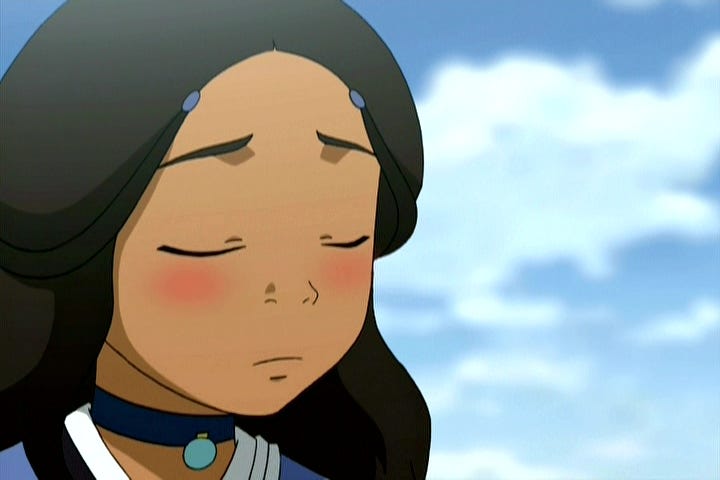
I wonder, often and pointlessly, if all exiles and victims of trauma are like this, left to the vicissitudes of the tides of their emotions even as the waves that inevitably come with them threaten to destroy everything they hold dear. I wonder this the same way that I once wondered why fire, and not water, was not Avatar’s element of change. Fire and water, all GRRM-inspiring Robert Frost poems aside, are equally powerful and destructive—just ask California and Puerto Rico if they would switch places with each other. Each brings death and life in equal measure: without wildfires and hurricanes we might live, and yet, without heat and hydration, we would certainly die.
But ultimately, water was the natural choice. In its stunning scientific simplicity, those two hydrogen atoms (potential nuclear death) bonded with just one oxygen atom (air—hi, Aang!—and breathing and life) become so much with just a bit of change. Water, yes, but ice, too, under certain circumstances, and also steam. The same water which, carbonated and mixed with gin, heralds a rowdy night of revelry can be brewed into a fine cup of calming tea. When tears flow in a hot shower, the waters intermingle and the tears are washed away.
Katara is the perfect vehicle for Avatar: The Last Airbender’s explorations of the nature of change precisely because the tempestuous nature of her twin selves—the duality of the self that must nurture everything and everyone around her to make up for her loss and the self that lashes out or, worse, bloodbends in anger and in hopelessness—is such a perfect encapsulation of water, the element that drowns and yet also makes up the vast majority of human life. That her character, with all its innate goodness burdened by all its trauma-induced flaws, remains so divisive among Avatar fans is not just a reflection of the specter of sexism in geekdom (although, as with the frequent maligning of Catelyn Stark by Game of Thrones fans, it definitely is that) but of the frustration we have with our own methods of getting by in the face of changes we can’t control. And in the end, isn’t it precisely the complex nature of Katara’s character—the warmth and fury her pain produced—that makes her such a powerful bender?
I see myself in Katara, and in Lady Catelyn, and in Aciman, in part because of the circumstantial similarities and the ways in which those characters—or, in Aciman’s case, real live people—deal with their hauntings. But I am not the only person Katara reflects. In the end, Katara’s reaction to change is infinitely relatable precisely because it, too, is ever-changing. And isn’t that inevitable, when the world around you seems so impossible to navigate, so dedicated to your physical, mental, and emotional destruction, and so inevitably doomed?
J.R.R. Tolkien certainly thought so. “I wish it need not have happened in my time,” his Frodo says in The Lord of the Rings, upon learning of the doom of Mordor and the One Ring of Sauron—the natural reaction of despair and denial in the face of a horrid impending change.
“So do I,” the wise wizard Gandalf replies, “and so do all who live to see such times. But that is not for them to decide. All we have to decide is what to do with the time that is given us.”
And what will you do with the water that is given to you?

Thanks for reading The Dot and Line, where we talk about animation of all kinds. Don’t forget to for this article and follow us on Twitter and Facebook.


